As we near the years 2025 and 2026, the beauty sector stands on the brink of a breakthrough in biotechnology that is poised to revolutionize innovation in cosmetics. It’s not about introducing new elements but rather a complete reinvention of how we create, manufacture, and perceive beauty items. From ingredient sourcing to heightened effectiveness, biotechnology is primed to revolutionize every facet of the field. Picture skincare products that combat aging at a cellular level, haircare products made from unused food resources, and customized solutions tailored to your genetic makeup. These are not fantasies but upcoming certainties. In this article, we delve into significant advancements in biotechnology that are set to redefine the beauty landscape, a window into a realm where the synergy of science and nature yields extraordinary outcomes like never before.
Table of Contents
● White biotechnology: renewable beauty
● Precision fermentation: scaling up sustainability
● AI biotech platforms: decoding beauty at the molecular level
● Green biotechnology: harnessing plant power
● Embracing the biotech beauty revolution
White biotechnology: renewable beauty
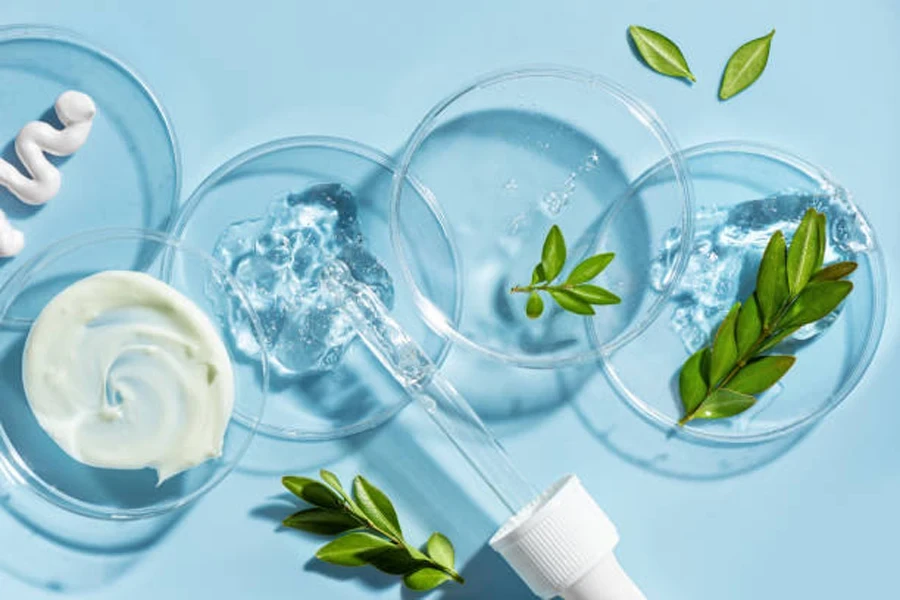
The beauty sector is moving towards an eco-friendly direction with white biotechnology—a pioneering method that uses renewable sources to produce sustainable ingredients. This cutting-edge technique leverages microorganisms, through fermentation and bioconversion, to convert raw materials into top-notch cosmetic elements.
White biotechnology is fascinating because it can repurpose materials that would otherwise be discarded as waste products in industries like food production. It involves turning them into effective anti-aging ingredients or organic preservatives instead of wasting them in landfills or incinerators. This helps reduce waste and contributes to a circular economy in the beauty industry by promoting sustainability and innovation through resourceful practices that benefit both the environment and businesses.
Furthermore, green technology is leading to the development of energy-efficient production techniques that utilize enzymes capable of functioning at lower temperatures, which significantly reduces energy usage for manufacturers. This transition towards sustainable methods benefits the environment and introduces exciting opportunities for innovative ingredients ranging from squalane derived from sugar cane to fermented plant extracts. White biotechnology is bringing forth a wave of cosmetic components that are not only efficient but also eco-friendly.
Precision fermentation: scaling up sustainability
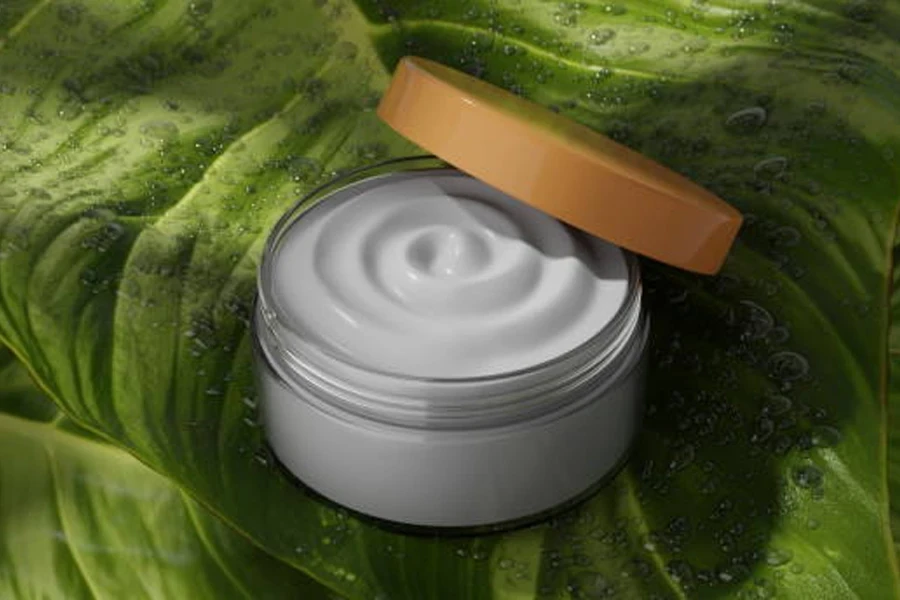
Precision fermentation is becoming a game-changing technology in the beauty sector that provides a means to produce targeted premium ingredients on a large scale efficiently. This cutting-edge approach modifies microorganisms as small-scale factories continuously generate cosmetic elements. The outcome is an eco-friendly and dependable source of intricate molecules that were challenging or unfeasible to replicate before.
Precision fermentation offers an avenue for developing vegan substitutes for animal-based ingredients like collagen, which is commonly found in anti-age products but poses ethical issues due to its traditional sourcing methods. Biotech companies are now leveraging precision fermentation techniques to produce plant-based collagen that mimics the structure of its animal-derived counterpart while providing similar advantages minus the ethical quandaries.
In addition to vegan options, precision fermentation is paving the way for advancements in ingredient development. By modifying microorganisms, researchers can produce specialized peptides and proteins tailored for specific skincare benefits. These customized components address various concerns, including reducing wrinkles and accurately enhancing skin barrier function. As this innovative technology progresses, it brings forth the prospect of an era characterized by potent eco-friendly beauty products crafted with ethical principles.
AI biotech platforms: decoding beauty at the molecular level
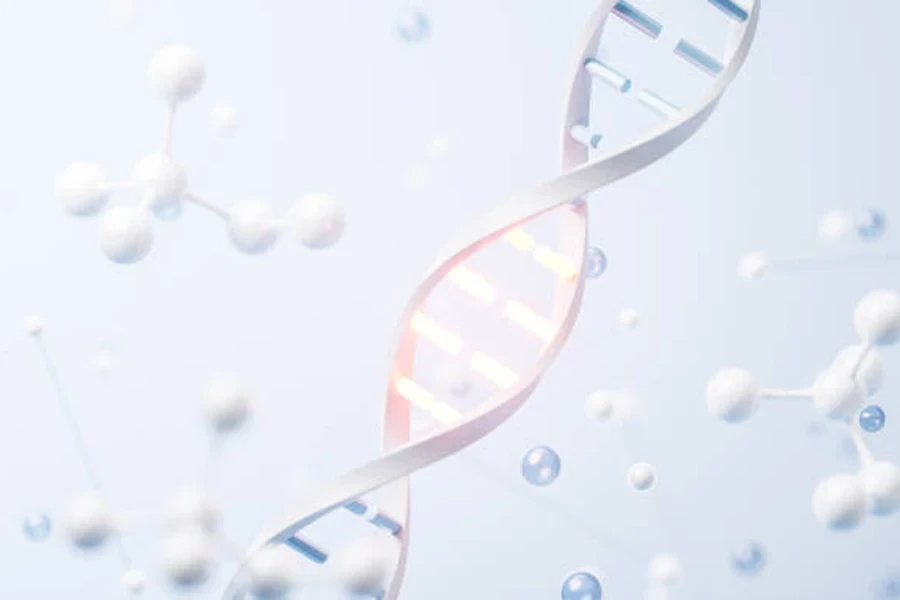
Artificial intelligence is transforming the beauty sector by focusing on discovering and developing ingredients for skincare products more efficiently than traditional methods. This allows researchers to overlook potential benefits in genetic data analysis and enables rapid testing of new bioactive compounds.
One of the advancements in beauty technology involving AI is its use in personalized skincare solutions. With the help of AI algorithms that analyze a person’s makeup, it becomes possible to anticipate how their skin will respond to various ingredients and environmental elements. This breakthrough enables the development of skincare routines that are tailored to meet each individual’s requirements on a molecular level. Imagine skincare products designed to combat the cellular processes responsible for an individual’s aging or customized acne remedies formulated based on the specific bacterial strains found on someone’s skin.
In addition, AI is improving how new ingredients are tested for effectiveness. By using machine learning algorithms, it is possible to simulate the interactions of compounds with human skin, reducing reliance on animal testing and accelerating product development. This streamlines the process of creating products and meets the increasing consumer demand for ethical and cruelty-free beauty solutions. With AI advancements, we expect to see accuracy and efficiency in beauty product development.
Green biotechnology: harnessing plant power
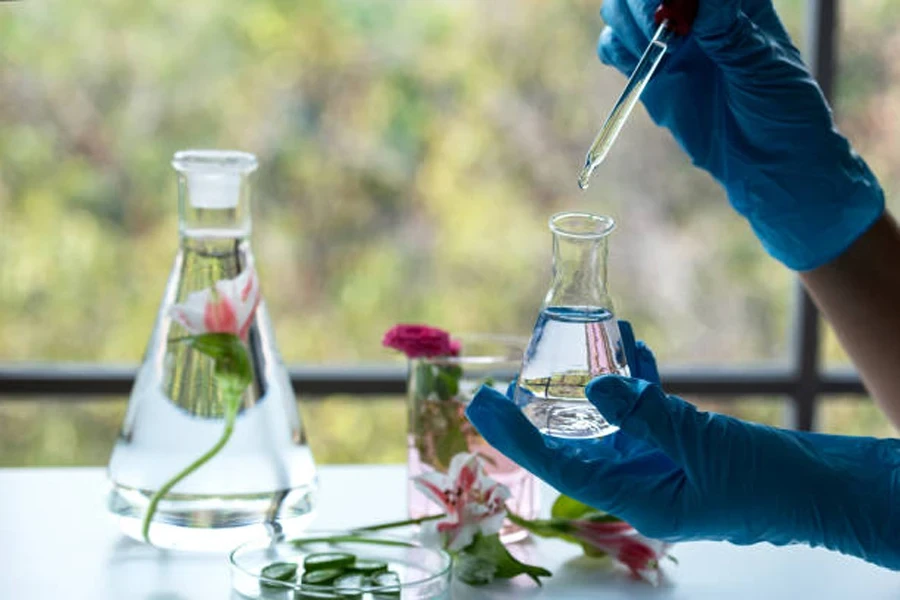
Green biotechnology is closing the gap between natural components and state-of-the-art technology by providing eco-friendly options to conventional plant extracts. It uses plant stem cells and advanced biotech methods to develop effective, long-lasting ingredients without harming environmental resources. This leads to the emergence of a fresh array of plant-based activities blending natural beauty charm with scientific progressiveness.
Green biotechnology offers an opportunity to safeguard and utilize the unique qualities of rare or endangered plant species without depleting them from their natural habitats. It allows researchers to nurture the stem cells of these plants in a monitored lab setting rather than plucking them from the wild. This approach safeguards the variety of plant life and ensures a steady stream of high-quality components. For instance, the sustainable production of extracts from alpine flowers renowned for their ability to thrive in harsh environments now enables more people to enjoy their skin-nourishing properties.
Moreover, green biotechnology is allowing the development of “super plants,” which are improved variations of well-known plants with heightened beneficial characteristics. Researchers can increase the yield of desired substances like antioxidants and hydrating agents by choosing and nurturing plant cells. This leads to more efficient components, even from ordinary plants. Picture an olive oil extract with twice the antioxidant strength or a green tea element with calming features. All these are made possible by the wonders of green biotechnology.
Embracing the biotech beauty revolution
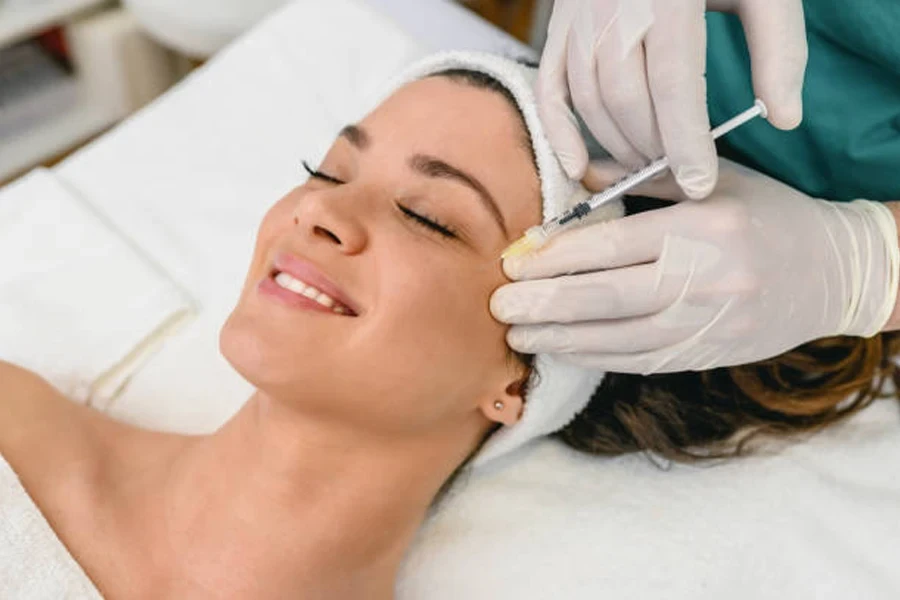
Looking ahead to the years leading up to 2025 and 2026 in the beauty sector reveals an influence of biotechnology shaping its path forward positively and sustainably. This is for both people and the environment by merging advanced scientific approaches emphasizing eco-friendliness. The emergence of biotech in beauty isn’t about introducing novel components but represents a fundamental shift in how beauty items are thought up and brought to life.
One of the fascinating things about the current biotech advancements is the opportunity for personalized beauty solutions. With the help of AI and cutting-edge biotechnology techniques in play, now comes the chance to craft products designed specifically for individual traits and skin environment conditions with utmost precision in mind. This personalized touch could pave the way for product efficacy and better results for individuals dealing with specific skin issues or sensitivities.
In addition to that, the beauty industry in biotechnology perfectly matches the increasing awareness of environmental issues.
In light of the growing concerns about climate change and limited resource availability in our world today, biotechnology presents solutions that help lessen the dependence on resources and lessen the harm to the environment. By utilizing ingredients produced via fermentation techniques and adopting packaging materials derived from eco-friendly biotechnology, the beauty industry can improve the sustainability of its products across the board. This transition towards eco-conscious and high-quality goods isn’t merely a fad but a vital progression for the sector.
Conclusion
The transformative beauty movement in biotechnology is not a future possibility but a current reality that is reshaping the industry significantly already. From eco-friendly sourcing with white biotechnology to customized skincare utilizing AI technology, these advancements establish fresh benchmarks for effectiveness, environmental consciousness, and ethical manufacturing practices. Looking ahead to the years 2025 and 2026, it is evident that biotechnology will persist in expanding the horizons of beauty innovation. Those who welcome these innovations will lead the way into a new chapter in beauty products, one that seamlessly combines scientific knowledge with natural elements and environmental consciousness. The beauty industry horizon looks promising thanks to the capabilities of biotechnology.




